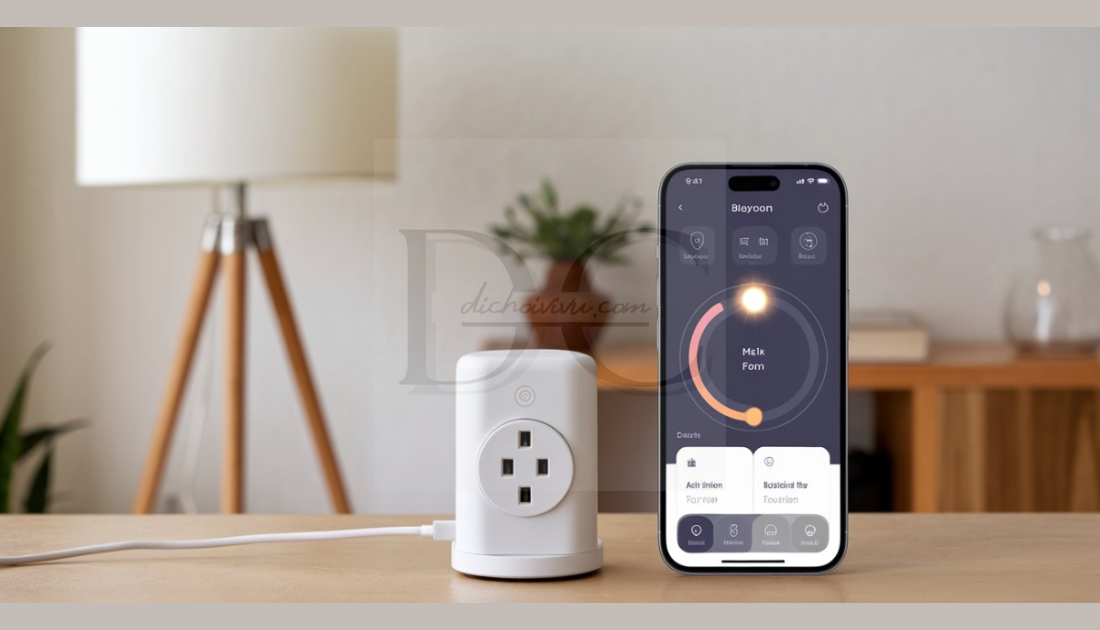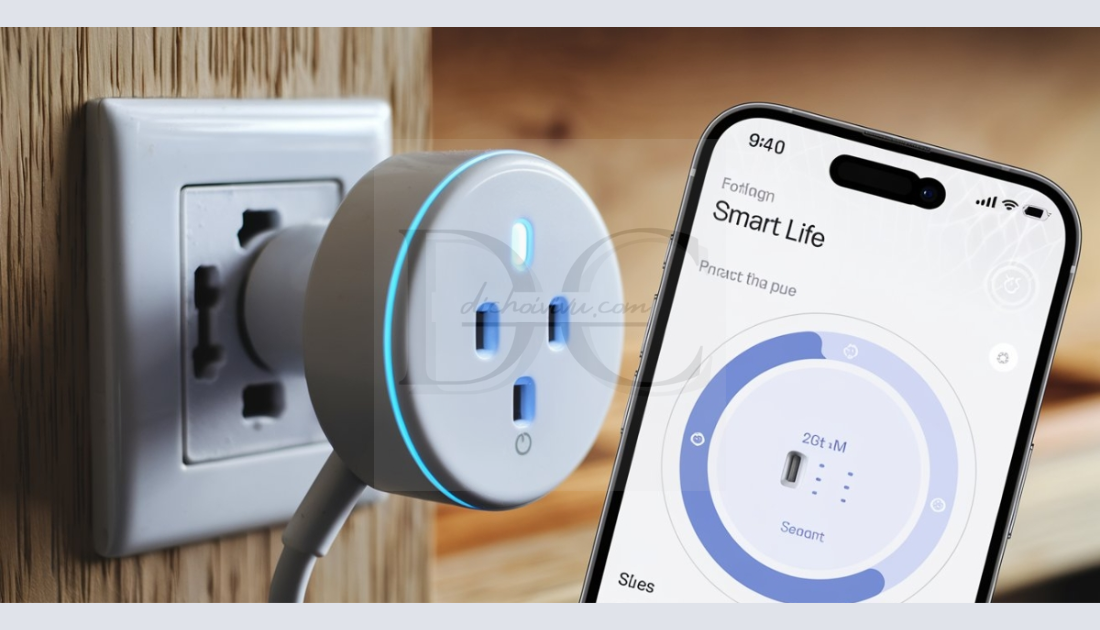Smart Plug Technology: Transforming Everyday Appliances into Smart Devices
In the age of the Internet of Things (IoT), smart plug technology has emerged as a simple yet powerful tool for enhancing everyday convenience. Smart plugs allow users to control traditional appliances remotely, integrate them into smart home ecosystems, and monitor energy usage with ease. Whether you want to automate your coffee maker or cut down on electricity bills, smart plug technology can revolutionize your home experience.
This article explores the benefits, functionality, and applications of smart plug technology, along with tips on how to choose the right smart plug for your needs.
What Is Smart Plug Technology?
Smart plug technology involves compact devices that connect traditional appliances to smart home systems. These plugs are inserted into standard electrical outlets and serve as intermediaries between the power source and the appliance. Once connected, users can control the appliance remotely via a smartphone app or through voice assistants like Alexa, Google Assistant, or Siri.
By converting ordinary devices into smart ones, smart plugs bridge the gap between traditional technology and modern automation.
How Does Smart Plug Technology Work?
The core of smart plug technology lies in its ability to communicate with devices through wireless protocols like Wi-Fi, Zigbee, or Bluetooth. Here’s how it works:
- Plug and Play
You plug the smart device into a standard outlet and then connect your appliance to the smart plug. - Connect to a Network
Using a compatible app, you link the smart plug to your Wi-Fi or home automation system. This connection allows you to control the plug remotely. - Control Appliances
Once set up, you can use your smartphone or voice commands to turn appliances on or off, set schedules, or monitor energy consumption. - Integration with Smart Home Ecosystems
Smart plugs seamlessly integrate with other IoT devices, enabling synchronized actions like turning off lights and appliances when you leave the house.
Benefits of Smart Plug Technology
Smart plug technology offers numerous advantages that simplify daily life and improve energy efficiency.
1. Remote Control of Devices
With smart plugs, you can operate appliances from anywhere using your smartphone. Forgot to turn off the fan before leaving? Simply switch it off via the app.
2. Energy Monitoring and Savings
Many smart plugs feature built-in energy monitors. These track the power consumption of connected devices, helping you identify energy-hungry appliances and reduce unnecessary usage.
3. Scheduling and Automation
Smart plugs allow you to schedule appliances to turn on or off at specific times. This is ideal for automating tasks like brewing coffee in the morning or turning off lights at bedtime.
4. Enhanced Safety
By remotely turning off appliances, smart plugs reduce the risk of electrical fires or overheating. Some models even include surge protection features.
5. Integration with Smart Homes
Smart plugs work seamlessly with other IoT devices. For instance, you can sync your plug with a smart thermostat to optimize heating and cooling based on your routine.
6. Cost-Effective Entry into Smart Homes
Unlike expensive smart appliances, smart plugs are affordable and offer an easy way to modernize your home without significant investment.
Applications of Smart Plug Technology
Smart plugs are incredibly versatile and can be used in various scenarios to enhance convenience and efficiency.
1. Lighting Control
Connect lamps to smart plugs to control lighting remotely. You can dim lights for a cozy evening or turn them off when you’re away to conserve energy.
2. Appliance Automation
Automate devices like coffee makers, slow cookers, or space heaters. With scheduling features, you can ensure your coffee is ready when you wake up or your home is warm when you return.
3. Energy Management
Monitor the energy usage of high-consumption appliances like refrigerators or air conditioners. Use this data to optimize their operation and lower your electricity bill.
4. Security Enhancements
Create the illusion of occupancy by scheduling lights or TVs to turn on and off while you’re on vacation. This deters potential intruders.
5. Charging Devices
Prevent overcharging of devices like smartphones or laptops by setting timers on your smart plugs. This protects batteries and conserves energy.
How to Choose the Right Smart Plug
When selecting a smart plug, consider the following factors to ensure it meets your needs:
1. Compatibility
Ensure the smart plug is compatible with your existing smart home ecosystem, such as Amazon Alexa, Google Assistant, or Apple HomeKit.
2. Connectivity
Choose between Wi-Fi, Zigbee, or Bluetooth-enabled plugs. Wi-Fi plugs offer greater range, while Zigbee plugs work well in smart home hubs.
3. Features
Look for features like energy monitoring, scheduling, and voice control. Some advanced models also offer surge protection and power usage statistics.
4. Size and Design
Compact designs are preferable, especially for outlets with multiple plugs. Oversized models may block adjacent sockets.
5. App Usability
The accompanying app should be user-friendly and offer intuitive controls for seamless operation.
6. Price and Brand Reputation
While smart plugs are generally affordable, investing in a reputable brand ensures better durability, support, and performance.
Challenges of Smart Plug Technology
Despite its many benefits, smart plug technology does come with a few challenges.
1. Dependence on Internet Connectivity
Most smart plugs require a stable internet connection to function. Outages can disrupt their operation.
2. Security Concerns
As with any IoT device, smart plugs are vulnerable to hacking if not secured properly. Using strong passwords and updating firmware regularly can mitigate these risks.
3. Compatibility Issues
Some smart plugs may not work with all appliances or smart home systems. Researching compatibility before purchase is essential.
4. Energy Usage of the Plug Itself
Although minimal, smart plugs consume some energy to remain operational. However, the savings from optimized appliance usage typically outweigh this consumption.
Future Trends in Smart Plug Technology
The future of smart plug technology is promising, with several innovations on the horizon:
1. AI Integration
Artificial intelligence will enhance smart plugs by learning user habits and optimizing energy usage based on patterns.
2. Renewable Energy Integration
Smart plugs will increasingly sync with renewable energy systems, enabling users to power devices during peak solar or wind production periods.
3. Voice-Activated Smart Plugs
Advanced models will feature built-in microphones, allowing direct voice commands without relying on separate assistants.
4. Improved Security Protocols
Future smart plugs will incorporate advanced encryption and security features to protect against cyber threats.
Conclusion
Smart plug technology is revolutionizing the way we interact with everyday appliances, bringing automation, efficiency, and convenience into our lives. Whether you’re looking to cut down on energy costs, enhance home security, or simply enjoy the perks of a smart home, smart plugs offer a cost-effective and user-friendly solution.
As technology continues to evolve, smart plugs will become even more powerful, integrating seamlessly into increasingly intelligent home ecosystems. Now is the perfect time to explore the possibilities and transform your living space with this innovative technology.

